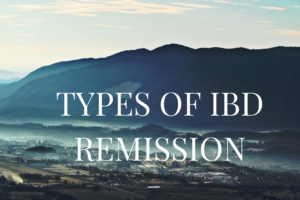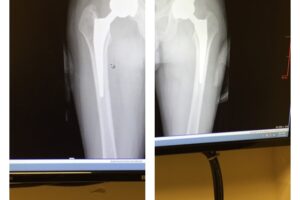Most people at this point know that I have Crohn’s Disease and I am working towards getting a PhD in Microbiology and Immunology to hopefully one day do Microbiology/Immunology Research relating to Inflammatory Bowel Disease. Right now the research I am working on deals with bacteria that are commonly found in the gut and have been implicated in IBD, whether they have shown to be good (helping decrease inflammation) or bad (Causing inflammation), most of the ones we have are bad guys in a sense.
I get asked all the time how I do work in a lab dealing with pathogenic bacteria and being on Humira, which suppresses the immune system. So I wanted to give you guys a glimpse into what I do and the precautions I have to take to make sure I don’t infect myself, which would be bad.
Let me first break down some lab terminology for you. The lab I am in is considered BioSafety Level 2 or BSL-2, and labs come in four levels. BSL-1 to BSL-4 and the higher the number the more dangerous the pathogens they can handle. For instance a BSL-1 lab just deals with bacteria and materials that are safe to work with that are not known to consistently cause disease, where as a BSL-2 lab we have special ventilation hoods and are equipped to deal with bacteria that can consistently cause disease and can potentially cause some serious health problems. BSL-3 and BSL-4 are a whole different type of environment. These labs are set up to work with some of the deadliest bacteria, viruses etc. They have a separate ventilation system from the building, you have to wear safety suits and be under some of the strictest regulations possible. The bacterium that causes Tuberculosis requires a BSL-3 Lab, whereas the Ebola Virus requires a BSL-4. Here are a couple of links that break this down further if you are interested.
http://www.cdc.gov/training/QuickLearns/biosafety/
Now, the lab I am in like I said is BSL-2 so we can handle a good bit of bacterial species that can cause disease. We have all of the equipment required, we have our biosafety hood that we use to do bacterial work and follow all of the precautions and rules listed. Now, Three of the 4 bacterial species I work with can cause significant illness under certain circumstances. So how do I protect myself specifically being under special health circumstances?


In general when working with bacteria even for people who do not have suppressed immune systems you want to try to not infect your self by making sure you don’t get bacteria on you, your clothes or anywhere on your face where they can get inside the body. For me this is extremely important because of my health problems and the suppressed immune system. Two of the three pathogens I work with are opportunistic pathogens which mean that they only cause disease when the circumstances are right so most people are okay to work with them taking the basic lab precautions.
For me, I have to first wear a lab coat in the lab, then when I am working with bacteria I always wear gloves and I also work under our special BioSafety hood that helps keep bacteria out of the environment (air and on lab benches, etc). I also wear a blue antimicrobial mask, this mask is coated with a special antimicrobial material, and it also filters the air coming through it to where most bacteria can’t get through, and it’s bright blue! I am also constantly washing my hands and using hand sanitizer, good hygiene is extremely essential in the lab and that goes for everyone in our lab! I have to be diligent though and really pay attention to everything I am doing and be aware of my surroundings, which is good lab practice in and of itself. Taking all of these precautions is essential in keeping me safe and thus far has worked. Here is a picture of me wearing my mask, coat and gloves about to work under our biosafety hood.
People ask why I would risk possibly getting infected and sick and here is the reason. I absolutely LOVE what I do. I do a lot of health advocacy work for people with IBD and things to raise awareness, but this is different. I get to be on the front lines of IBD research that is helping answer questions about how specific bacterial species are affecting the gut and causing/promoting or decreasing inflammation. If even one small part of my research benefits the IBD community then the risk is worth it. I obviously do everything possible to prevent myself from getting sick, but I also will still keep studying, working on my degree’s and hopefully one day continue working on IBD research in my own lab. None of this work would be possible without my awesome mentor Dr. Erin Norcross, she is the reason I get to do this awesome research and has taught me so many things about science and research and has been a huge help in my continued development as a scientist. Just wanted to throw that out there. 🙂

